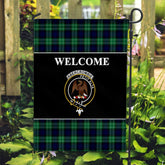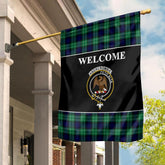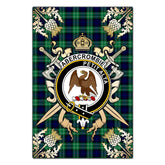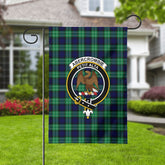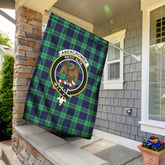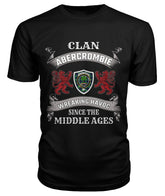The History of Clan MacDonald: Scotland’s Lords of the Isles
The MacDonald clan, one of Scotland’s most iconic and storied families, boasts a rich history that spans centuries of triumphs, trials, and transformations. Known as the “Lords of the Isles,” the MacDonalds played a pivotal role in the history of Scotland, leaving an indelible mark on its culture, politics, and traditions. Let’s explore the fascinating journey of this legendary clan.
Origins of the MacDonald Clan
The origins of Clan MacDonald trace back to Somerled, a Norse-Gaelic warrior who emerged as a formidable leader in the 12th century. Somerled’s descendants, known as the Clan Donald, would go on to establish themselves as one of the most influential clans in Scotland. The name MacDonald itself means “son of Donald,” derived from Donald, the grandson of Somerled.
The Lords of the Isles
By the 13th century, the MacDonalds had risen to prominence as the Lords of the Isles, ruling over a vast maritime domain that included the western Scottish Highlands and the Hebrides. Their strategic control of the sea routes and islands made them powerful players in Scottish politics, often acting as a counterbalance to the authority of the Scottish crown.
The Lords of the Isles maintained a unique culture that blended Gaelic and Norse influences, evident in their language, art, and traditions. They fostered a thriving society that celebrated poetry, music, and storytelling, many of which remain integral to Scottish heritage today.
Key Historical Events
-
The Battle of Harlaw (1411): One of the most significant moments in the clan’s history was the Battle of Harlaw, where Donald, Lord of the Isles, led a large force in a bid to assert his claim to the Earldom of Ross. Although the battle ended inconclusively, it underscored the clan’s power and ambition.
-
The Forfeiture of the Lordship (1493): The MacDonald’s independence as Lords of the Isles came to an end when John MacDonald II was stripped of his titles by James IV of Scotland. This marked a turning point, as the clan’s influence became more localized, although they continued to play key roles in the Highlands.
Clan Feuds and Alliances
Like many Scottish clans, the MacDonalds were embroiled in numerous feuds and alliances. Their rivalry with Clan Campbell is particularly well-documented, culminating in infamous events like the Massacre of Glencoe in 1692. Despite these conflicts, the MacDonalds also forged alliances through marriage and shared interests, which helped maintain their status as a formidable clan.
The MacDonald Name Today
Today, the MacDonald name is celebrated worldwide, with descendants and clan societies preserving the rich legacy of their ancestors. The clan’s tartan, crest, and motto (“Per Mare Per Terras” – By Sea and By Land) serve as enduring symbols of their heritage. Visitors to Scotland can explore landmarks like the ruins of Finlaggan on Islay, the ancient seat of the Lords of the Isles, to connect with the clan’s storied past.
A Legacy of Resilience
The history of Clan MacDonald is a testament to resilience and adaptability. From their early days under Somerled to their prominence as Lords of the Isles and beyond, the MacDonalds have played a vital role in shaping Scotland’s identity. Their story continues to inspire pride and fascination among those with Scottish roots and history enthusiasts alike.
Whether you are a descendant of the MacDonald clan or simply captivated by Scotland’s rich tapestry of history, the legacy of the MacDonalds offers a compelling glimpse into a bygone era of bravery, culture, and influence.

